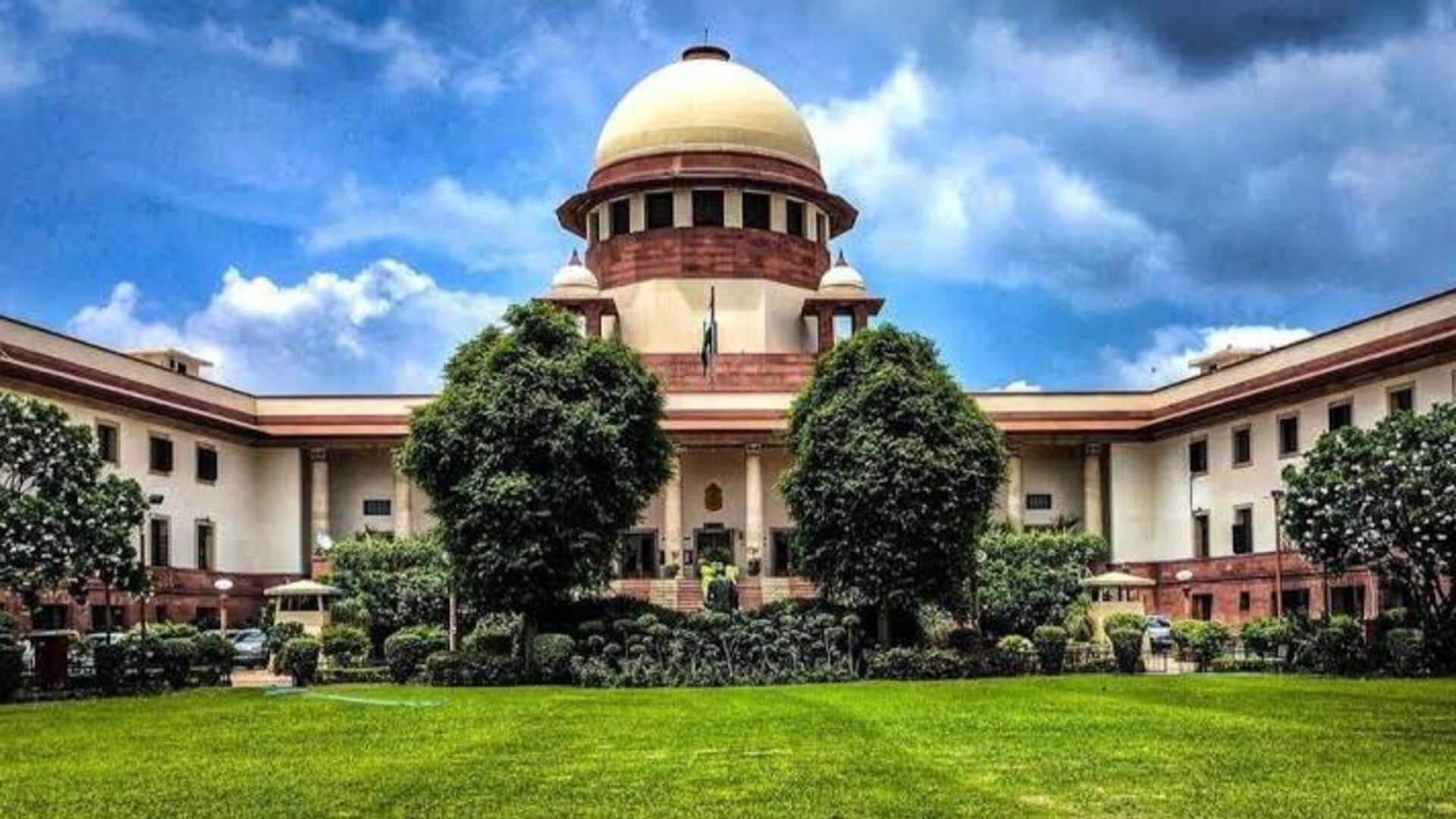
No timelines for governor/ president to act on bills: SC
What's the story
The Supreme Court has ruled that there can be no timelines for the president or governors to act on bills passed by state legislatures. The bench led by Chief Justice BR Gavai, Justices Surya Kant, Vikram Nath, PS Narasimha and Atul S Chandurkar held that the imposition of such timelines is against the Constitution and violates the separation of powers doctrine. It also rejected the idea of "deemed assent" for bills if the president or governor doesn't adhere to timelines.
Assent clarification
Court rejects 'deemed assent' concept for bills
"The imposition of timelines is strictly contrary to the elasticity that Constitution has preserved. The concept of Deemed assent in the context of Articles 200 and 201 presupposes that one Constitutional authority, namely court, could play a substitutional role for another Constitutional functionary authority - the Governor or President." "Such usurpation of gubernatorial powers of governor or president is antithetical to the spirit of the constitution and the doctrine of separation of powers," the court held.
Judicial intervention
Court emphasizes limited judicial intervention
The bench stressed that judicial review can only happen after a bill becomes law, not before. The court also stressed that it can only intervene in cases of unreasonable and unexplained delays. Courts can then issue a limited direction to the governor to act within a reasonable time period without making any observations on the merits of discretion. It said, "Not everything will lead courts to issue...directions to act and it has to be measured based on appropriate circumstances."
Previous ruling
Earlier ruling prescribed timelines for Governor's actions
The earlier ruling from April by a different bench had prescribed timelines for the governor's actions, including a maximum period of one month for granting assent or reserving bills. Regarding the president's powers, the court held that her decision-making is not beyond judicial scrutiny and must take place within three months. Following the ruling, the president referred 14 questions to the SC, seeking clarification on whether imposing time limits encroaches upon the discretionary space constitutionally granted to presidents and governors.
Case
April judgment
The April judgment by a bench of Justices JB Pardiwala and R Mahadevan resolved a long standoff between Tamil Nadu government and Governor RN Ravi over the delay in granting assent to bills twice passed. It ruled that Ravi's refusal to approve 10 bills was both "illegal and arbitrary" before setting deadlines for both the governor and president. Furthermore, it broadened the scope of judicial review for governors' actions, allowing state governments to approach courts if these timelines weren't followed.